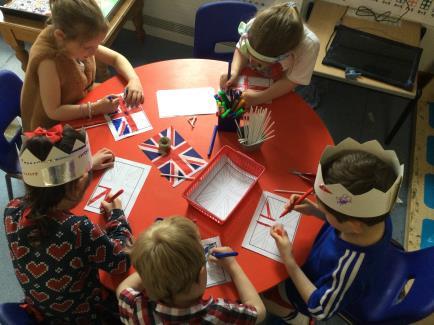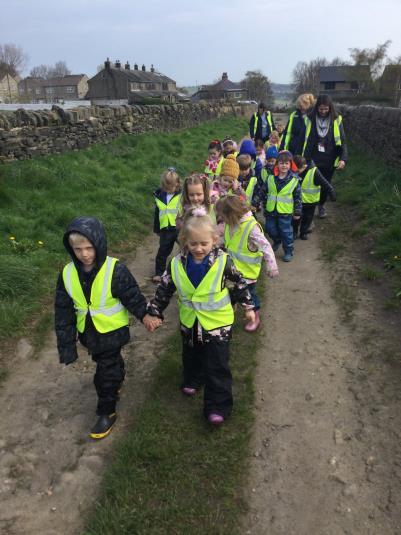










Reception 2024 Welcome Meeting


Andrew Hancox
Headteacher

 Claire Brook Assistant Head SENDCo
Claire Brook Assistant Head SENDCo
Emily Knight EYFS Teacher

Tabetha Painten
Phonics Lead

Katy Crowther EYFS Teaching Assistant

There will be lots of other faces you get to know over your time at Scholes!
ndependent Nurture Determination Communicative Local Enriched Ambitious Remembered

ind


• Monday 2 September INSET Day (No pupils in school)

• Tuesday 3 September 8.45 – 11.30 (FIRST DAY of SCHOOL)
• Wednesday 4 September 8.45 – 11.30
• Thursday 5 September 8.45 – 1.00 (including lunch)
• Friday 6 September 8.45 – 3.30 (first full day)


It is based on the recognition that children learn best through play and active learning
➢ Doors open 8:45
➢ Register
➢ Morning session 9:00
➢ Lunch 11:50
➢ Afternoon session 1:00
➢ Home time 3:30



All children in Reception are eligible for Universal Free School Meals – all cooked on site by our kitchen staff





Being happy!










Play games which encourage sharing and turn taking.
Talk about how people are feeling.
Support your child to get dressed and use the toilet independently.
Use a knife and fork.

Take time to listen to your child talking about things they’ve done and answering their questions.
Encourage your child to ask questions.
Share books and stories, encouraging your child to listen carefully, join in and talk about them.
Make up your own stories and act them out.
Sing songs and nursery rhymes.
Play games such as ‘I Spy’.
Practise pencil grip – colouring and drawing and talking about the pictures they make.






Facebook / X
Pupil Premium?
Ask Questions!


Reading / Phonics at home


Why reading to your child really matters





Reading a book and chatting about it has a positive impact on children’s
• understand words and sentences
• use a wide range of vocabulary
• develop listening comprehension skills

Parental involvement in the development of children’s reading skills: A five-year longitudinal study (2002) Senechal, M. and Lefvre, J.

The number of books your child has encountered by the age of six is a positive predictor of their reading ability two years later.
This benefit comes from:
Adults reading to children and children enjoying books simply by looking at them and talking about them.
Parental involvement in the development of children’s reading skills: A five-year longitudinal study (2002) Senechal, M. and Lefvre, J.



Studies show that it’s the enjoyment and chat that matters!
The more you chat together about the book and things that interest your child, the more impact it has. You don’t even have to read the words on the page – talking about the pictures is just as important. If you can read the words, then use your voice to make them come alive. It will help your child understand the book even better.



Does it matter which language we use?

Use your home language. It is better for your child to hear expert talk from you in your language.
Many studies tell us it is the back-and-forth talk between adults and children when they are sharing books that makes the difference to children’s language and comprehension. This impact will translate to better language and comprehension for your child in English.


Let your child be the boss of the books they choose. Enjoyment really matters.
Comics, information books, magazines, story books, picture books, poems and leaflets are all great for sharing.
Catalogues are fun to share and talk about too.



if they always want to read the same book?

Repeated reading of books is really beneficial for children. It helps them memorise parts of stories, words and phrases too.
Knowing a book or poem by heart is fun and powerful for children, they can ‘read’ the story with you, or join in with words of phrases.
If you really want to mix it up, offer another book alongside the much-loved favourite!





• Nursery is where we lay the foundations for a love of books.
• You can help at home by:
• talking lots to your child
• reading aloud to them every day
• singing songs and rhymes
• playing some of our Tuning into sounds and Rhyme time games.
• go on sound walks and get them to identify the sounds.


A love of reading is the biggest indicator of future academic success!

Telephone the school before 9.00am if your child is ill.
Let us know about any medical appointments.
Keep us up to date with contact details.
Let us know if there is anything worrying your child.
Ensure uniform and PE kits are named.
Send your child with a named water bottle.
Check book bags every evening.
Support your child to look after their belongings.


Teach them how to put on coat and shoes, wash hands

Extra transition visit 9:30 – 10:30
One parent to stay with child
For visit dates, please check with the school office.


Whole class transition morning: Tuesday 2nd July Drop off at 9:15
Collect at 11:15




go have a look around…